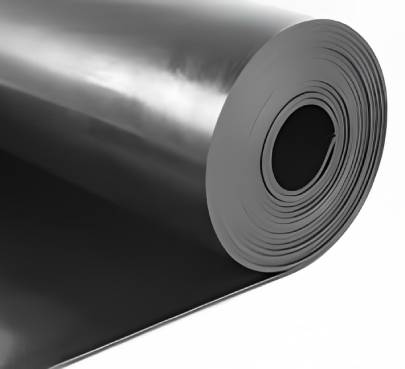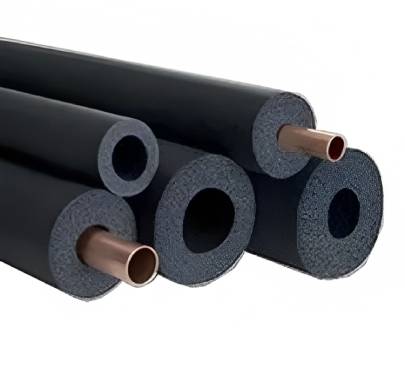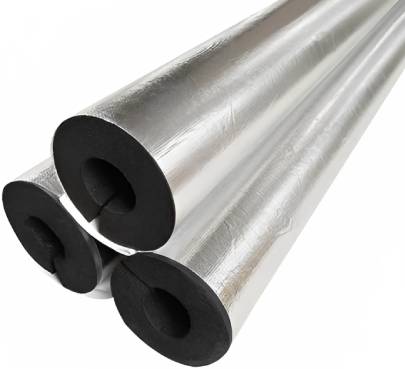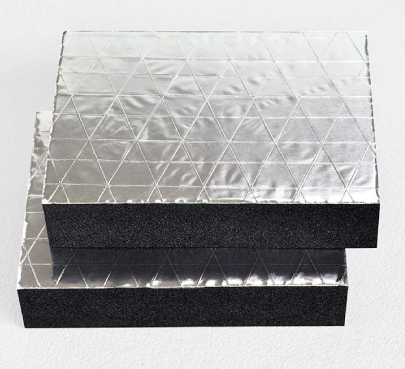Nitrile Rubber Sheet (Plain)
Nitrile rubber sheets are composed primarily of nitrile butadiene rubber, a synthetic elastomer derived from the copolymerization of acrylonitrile and butadiene. This composition imparts the sheets with desirable properties such as oil resistance, abrasion resistance, and flexibility.
| Parameter | Value |
| Density (Kg/M³) | 40-60 |
| Thermal Conductivity | 0.038 (at ambient) |
| Thicknesses (mm) | 6, 9, 13, 19, 25, 32 |
| Temperature Range | -40°C to +105°C |
| Water Vapour Diffusion | >= 7000 |
| Corrosion Risk | Non Corrosive |
| Toxicity | Low carbon monoxide formation |
| Asbestos | No Asbestos |
| Fungus Growth | No growth observed |
| Closed Cell | 90% |
| Resistance to Oil & Grease | Very Good |
Applications
- Sealing and Gasketing: Nitrile rubber sheets are often used to create seals and gaskets in automotive engines, machinery, and equipment to prevent leakage of fluids.
- Vibration and Impact Isolation: Their flexibility and shock-absorbing properties make these sheets suitable for applications where vibration and impact need to be dampened.
- Industrial Protection: Nitrile rubber sheets are used for lining tanks, chutes, and other equipment in industrial settings to protect against abrasive materials, chemicals, and wear.
- Automotive Industry: They are used in various automotive components such as oil seals, fuel system components, and gaskets.
- Mining and Construction: Nitrile rubber sheets find application in mining equipment, construction machinery, and other heavy-duty industrial equipment.
Advantages
- Oil and Fuel Resistance: One of the primary advantages of nitrile rubber sheets is their exceptional resistance to oils, fuels, and lubricants. This property makes them well-suited for applications in automotive, industrial machinery, and fuel-handling systems.
- Chemical Resistance: Nitrile rubber sheets exhibit good resistance to a wide range of chemicals and solvents, making them suitable for use in environments where exposure to various chemicals is likely
- Flexibility: These sheets maintain their flexibility over a wide temperature range, which allows them to be used in both high and low-temperature environments.
- Tear and Abrasion Resistance: Nitrile rubber sheets have relatively high tear and abrasion resistance, making them durable and capable of withstanding mechanical stress.
- Water Resistance: While nitrile rubber is not as inherently water-resistant as some other elastomers like neoprene, it still offers moderate water resistance and can be used in applications where water exposure is limited.
Manufactures We Have








